NURSING 1950 Mental Health Module 3 Exam Questions and Answers- SRTC
Document Content and Description Below
NURSING 1950 Mental Health Module 3 Exam Questions and Answers- SRTC 1. A patient became severely depressed when the last of the family's six children moved out of the home 4 months ago. The patient r... epeatedly says, "No one cares about me. I'm not worth anything." Which response by the nurse would be the most helpful? "I'll sit with you for 10 minutes now and 10 minutes after lunch to help you feel that I care about you." Spending time with the patient at intervals throughout the day shows acceptance by the nurse and will help the patient establish a relationship with the nurse. The therapeutic technique is "offering self." Setting definite times for the therapeutic contacts and keeping the appointments show predictability on the part of the nurse, an element that fosters trust building. 2. A patient became depressed after the last of the family's six children moved out of the home 4 months ago. Select the best initial outcome for the nursing diagnosis Situational low self-esteem related to feelings of abandonment. The patient will: verbalize realistic positive characteristics about self by (date). Low self-esteem is reflected by making consistently negative statements about self and self-worth. Replacing negative cognitions with more realistic appraisals of self is an appropriate intermediate outcome. 3. A patient diagnosed with major depression says, "No one cares about me anymore. I'm not worth anything." Today the patient is wearing a new shirt and has neat, clean hair. Which remark by the nurse supports building a positive self- esteem for this patient? "You're wearing a new shirt." Patients with depression usually see the negative side of things. The meaning of compliments may be altered to "I didn't look nice yesterday," or "They didn't like my other shirt." Neutral comments such as making an observation avoid negative interpretations. 4. An adult diagnosed with major depression was treated with medication and cognitive behavioral therapy. The patient now recognizes how passivity contributed to the depression. Which intervention should the nurse suggest? Social skills training Social skill training is helpful in treating and preventing the recurrence of depression. Training focuses on assertiveness and coping skills that lead to positive reinforcement from others and development of a patient's support system. 5. Priority interventions for a patient diagnosed with major depression and feelings of worthlessness should include: careful unobtrusive observation around the clock Approximately two-thirds of people with depression contemplate suicide. Patients with depression who exhibit feelings of worthlessness are at higher risk. Regular planned observations of the patient diagnosed with depression may prevent a suicide attempt on the unit. 6. When counseling patients diagnosed with major depression, an advanced practice nurse will address the negative thought patterns by using: cognitive behavioral therapy Cognitive behavioral therapy attempts to alter the patient's dysfunctional beliefs by focusing on positive outcomes rather than negative attributions. The patient is also taught the connection between thoughts and resultant feelings. Research shows that cognitive behavioral therapy involves the formation of new connections between nerve cells in the brain and that it is at least as effective as medication. 7. A patient says to the nurse, "My life doesn't have any happiness in it anymore. I once enjoyed holidays, but now they're just another day." The nurse documents this report as an example of: anhedonia Anhedonia is a common finding in many types of depression. It refers to feelings of a loss of pleasure in formerly pleasurable activities. 8. A patient diagnosed with major depression began taking a tricyclic antidepressant 1 week ago. Today the patient says, "I don't think I can keep taking these pills. They make me so dizzy, especially when I stand up." The nurse will: teach the patient strategies to manage postural hypotension Drowsiness, dizziness, and postural hypotension usually subside after the first few weeks of therapy with tricyclic antidepressants. Postural hypotension can be managed by teaching the patient to stay well hydrated and rise slowly. Knowing this information may convince the patient to continue the medication. 9. A patient diagnosed with depression is receiving imipramine (Tofranil) 200 mg qhs. Which assessment finding would prompt the nurse to collaborate with the health care provider regarding potentially hazardous side effects of this drug? Urinary retention All the side effects mentioned are the result of the anticholinergic effects of the drug. Only urinary retention and severe constipation warrant immediate medical attention. 10. A patient diagnosed with major depression tells the nurse, "Bad things that happen are always my fault." Which response by the nurse will best assist the patient to reframe this overgeneralization? "Let's look at one bad thing that happened to see if another explanation exists." assumption, the nurse can help the patient look at the premise more objectively and reframe it as a more accurate representation of fact. [Show More]
Last updated: 1 year ago
Preview 1 out of 38 pages
Instant download
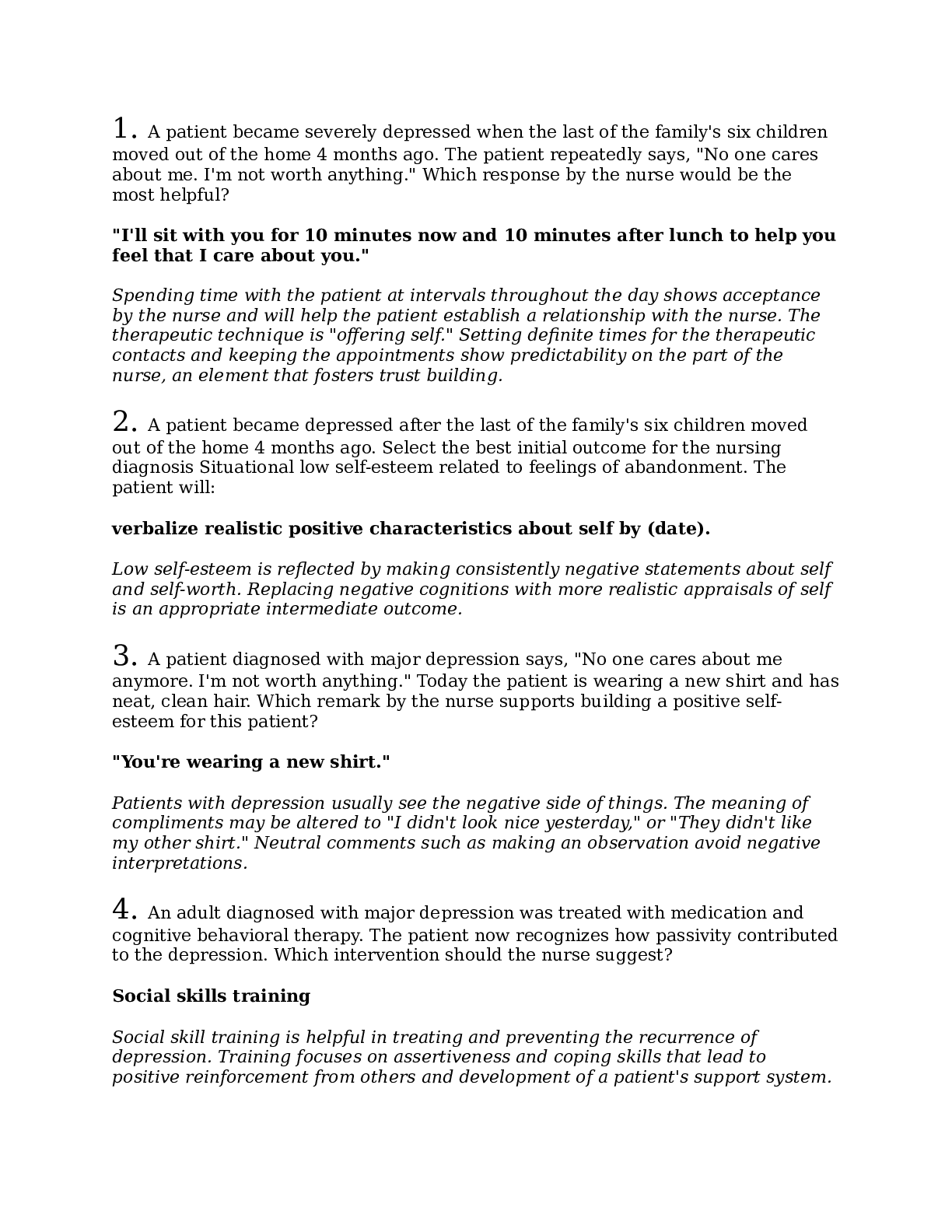
Buy this document to get the full access instantly
Instant Download Access after purchase
Add to cartInstant download
Reviews( 0 )
Document information
Connected school, study & course
About the document
Uploaded On
Sep 01, 2021
Number of pages
38
Written in
Additional information
This document has been written for:
Uploaded
Sep 01, 2021
Downloads
0
Views
95

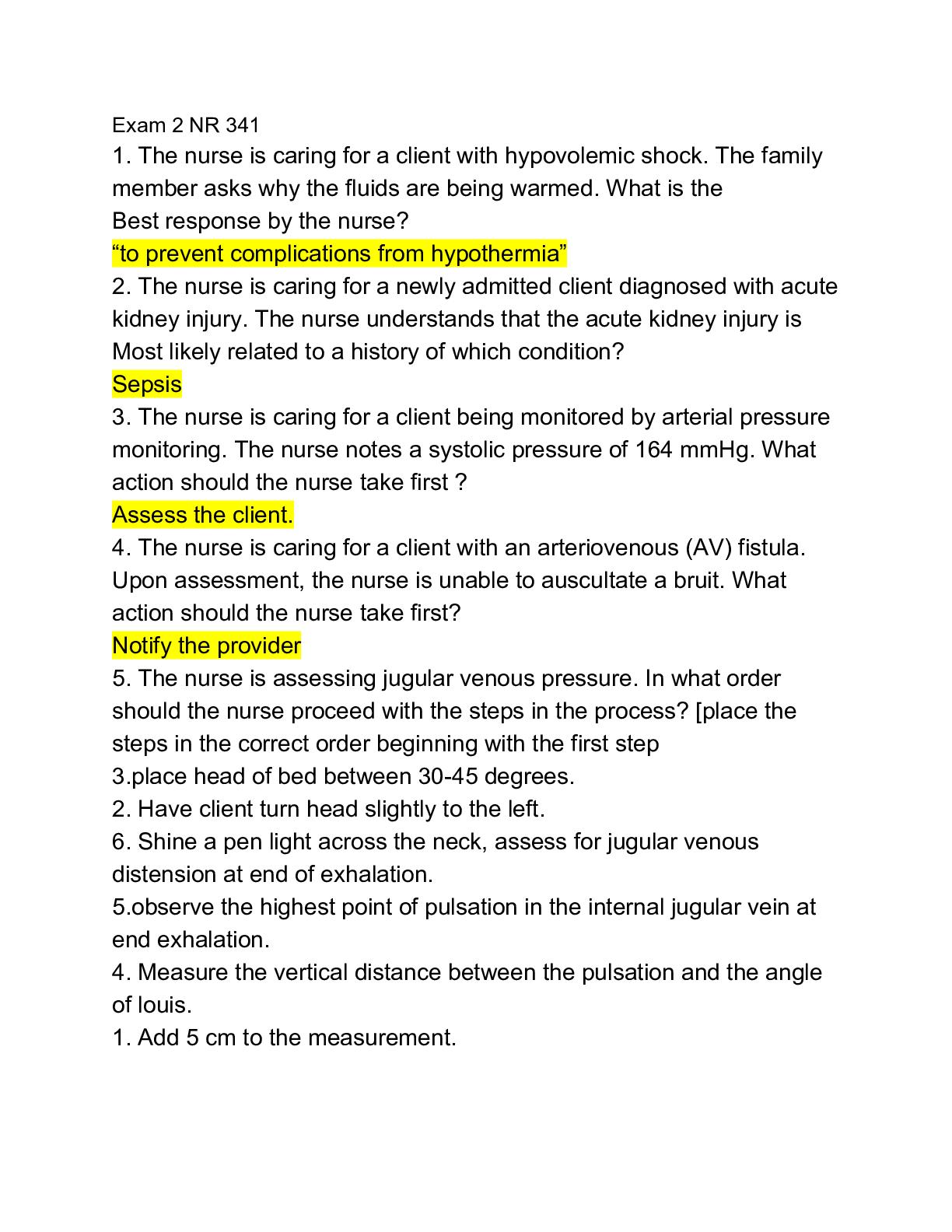
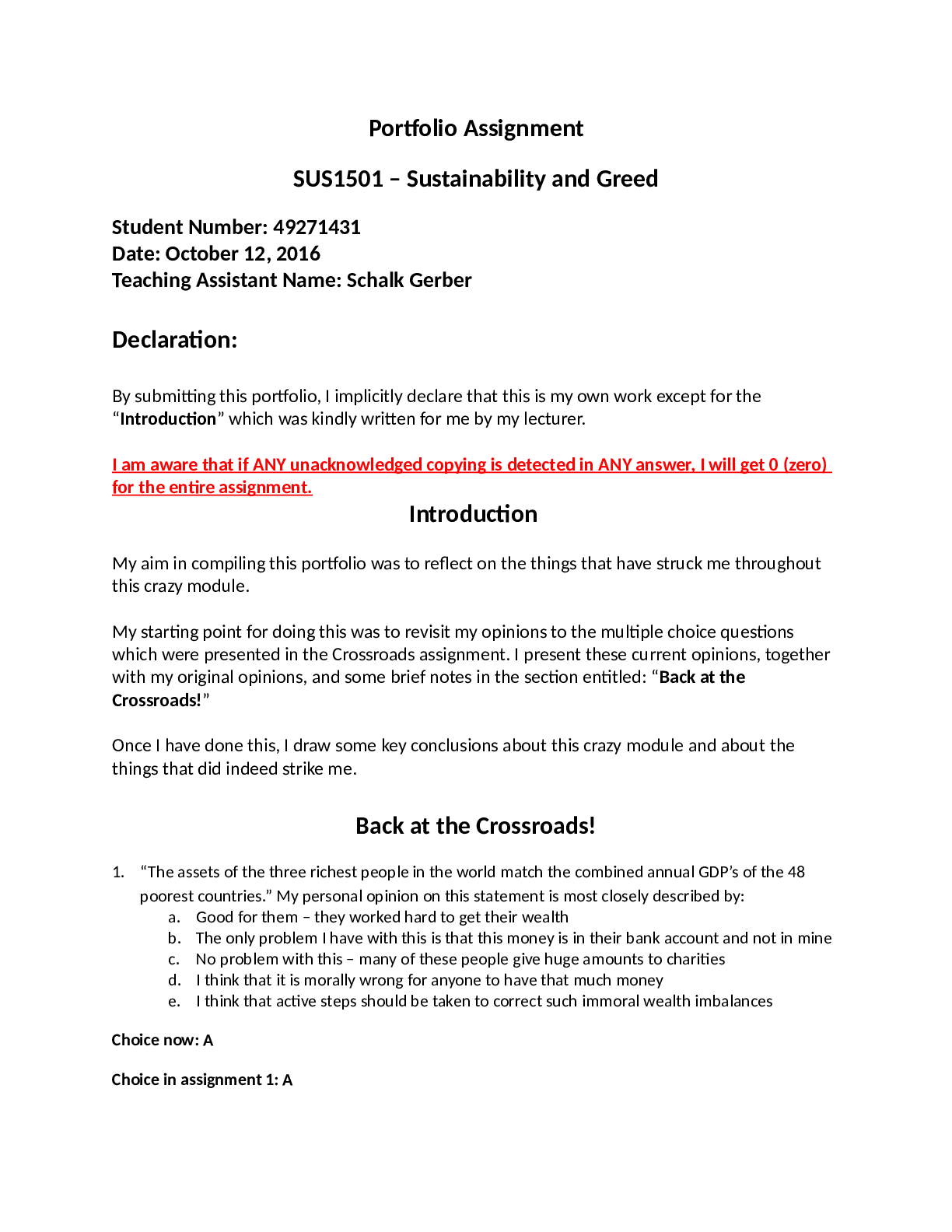
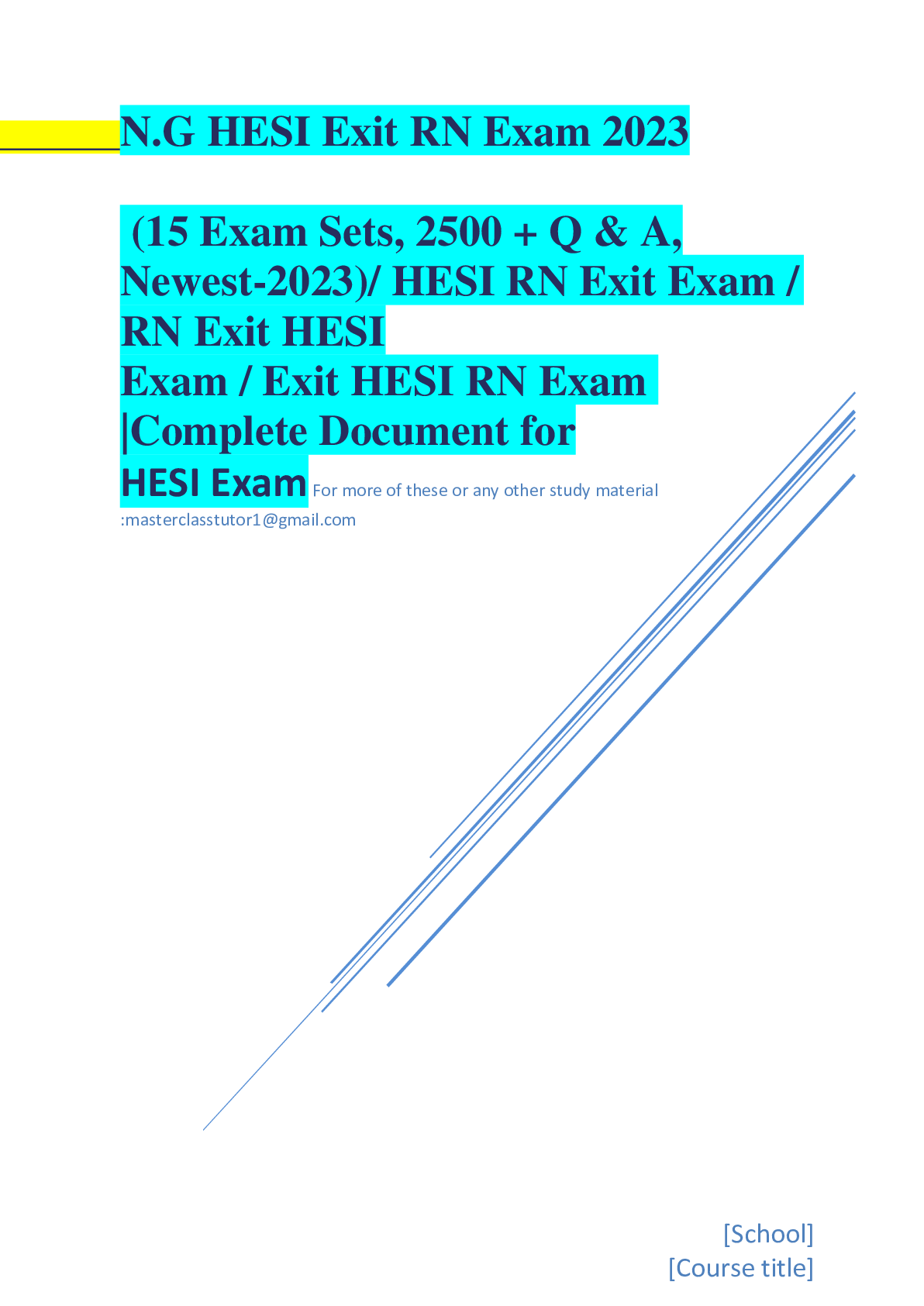
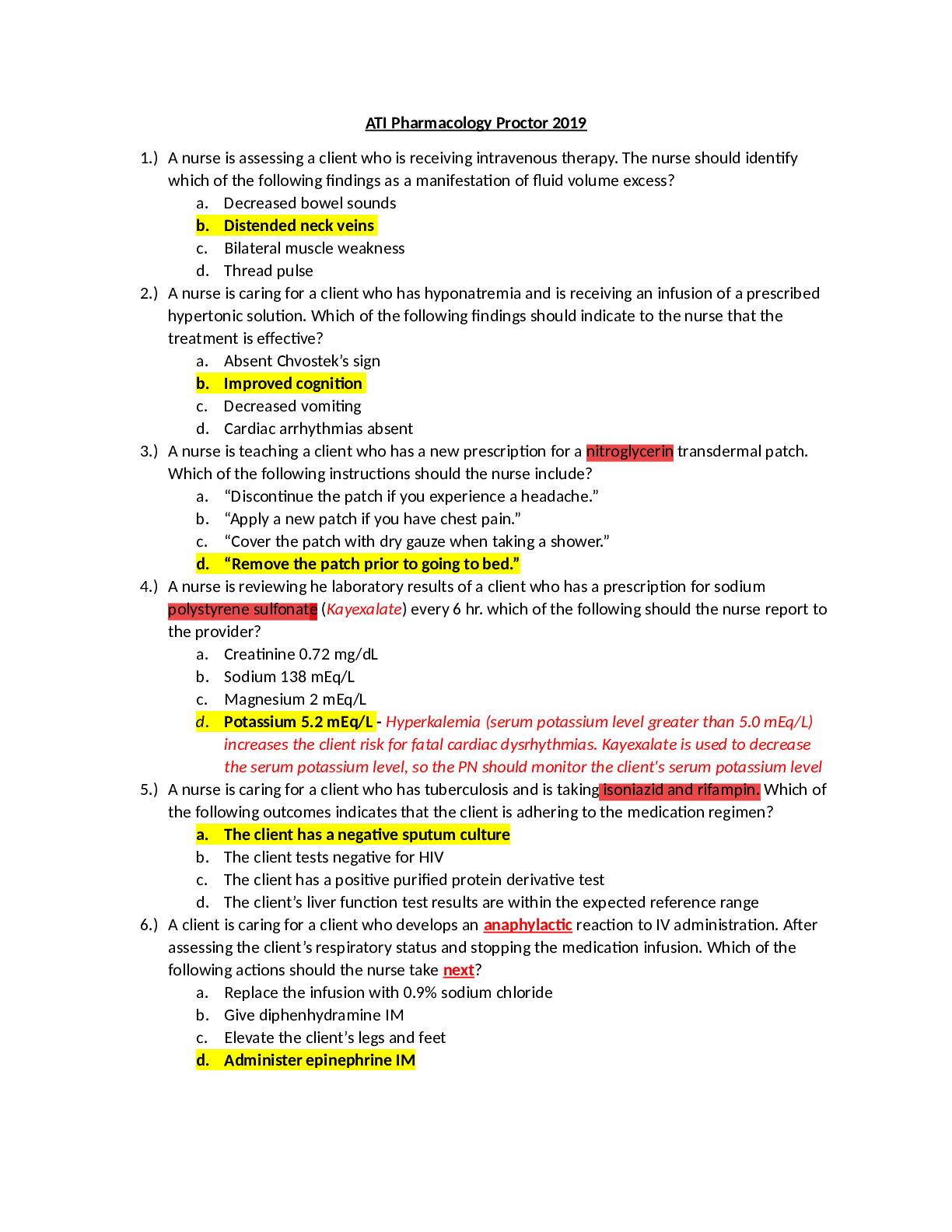
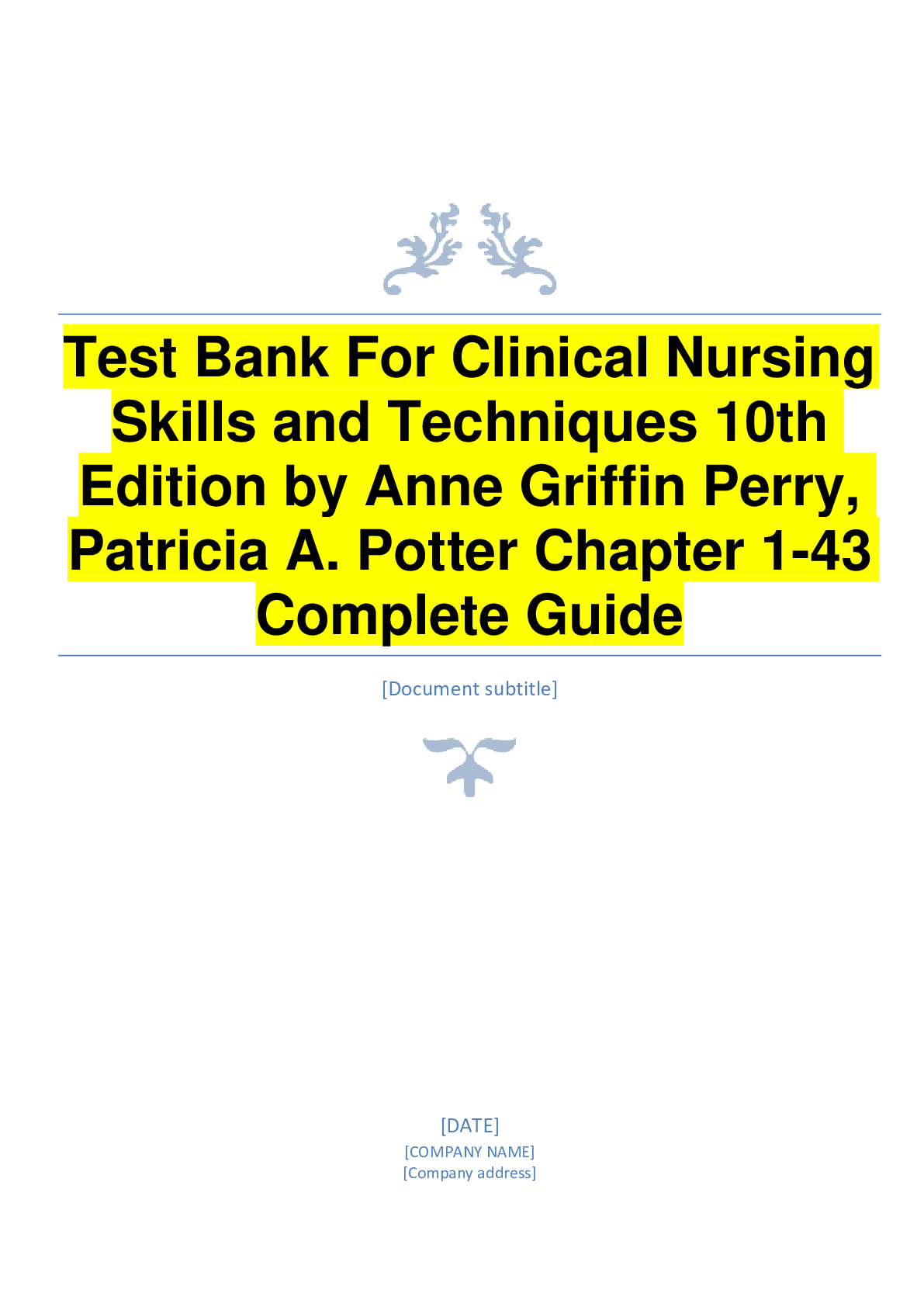
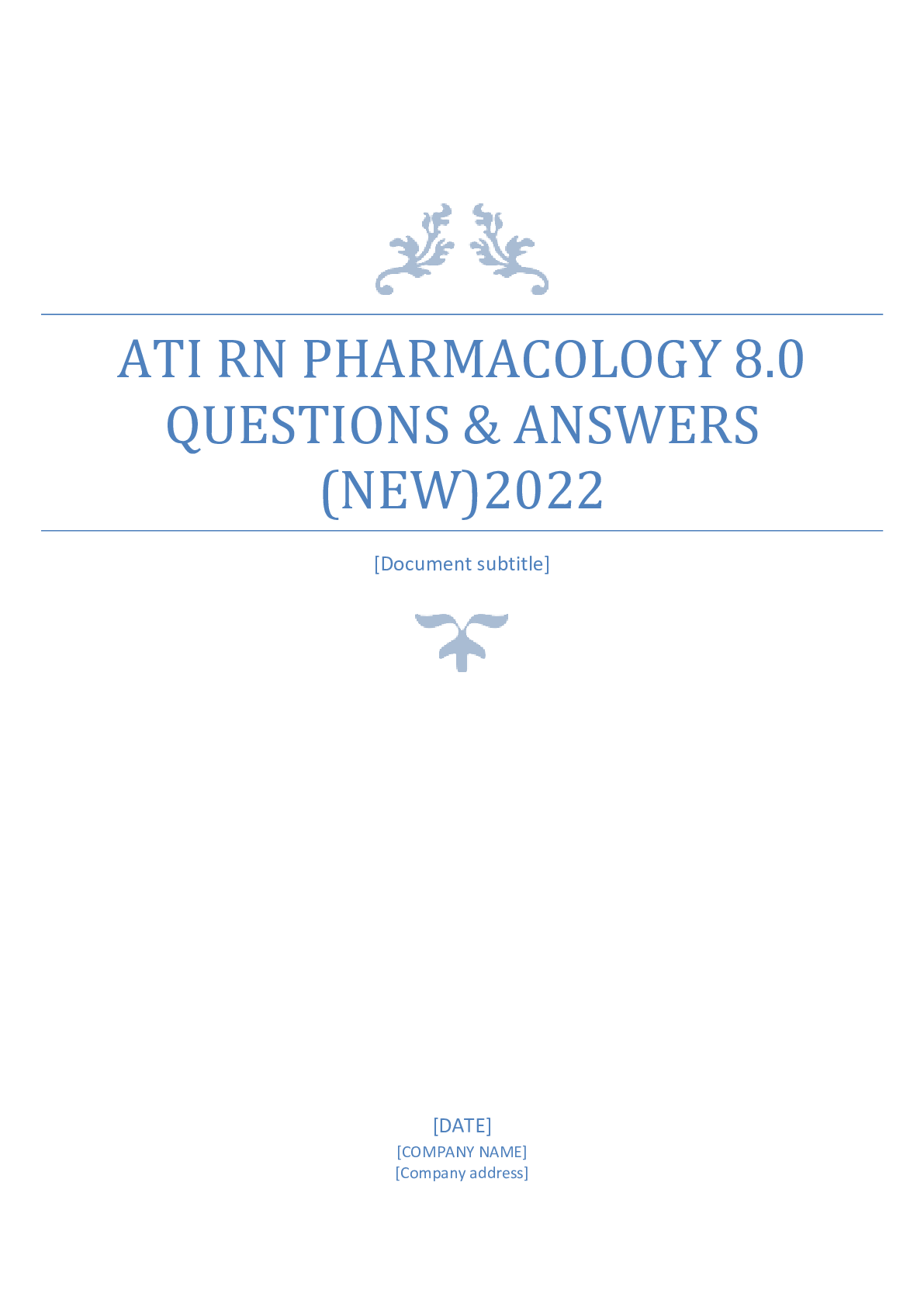
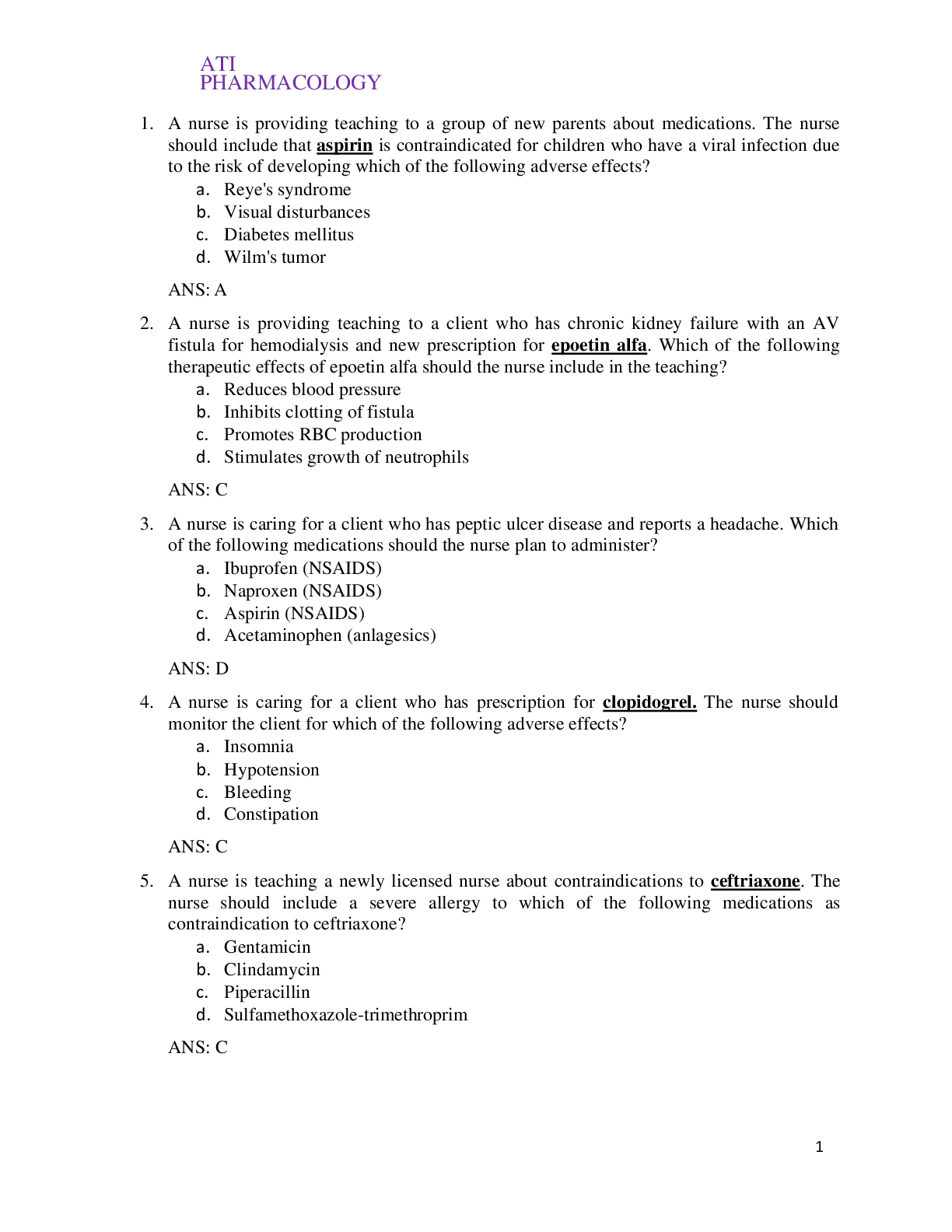
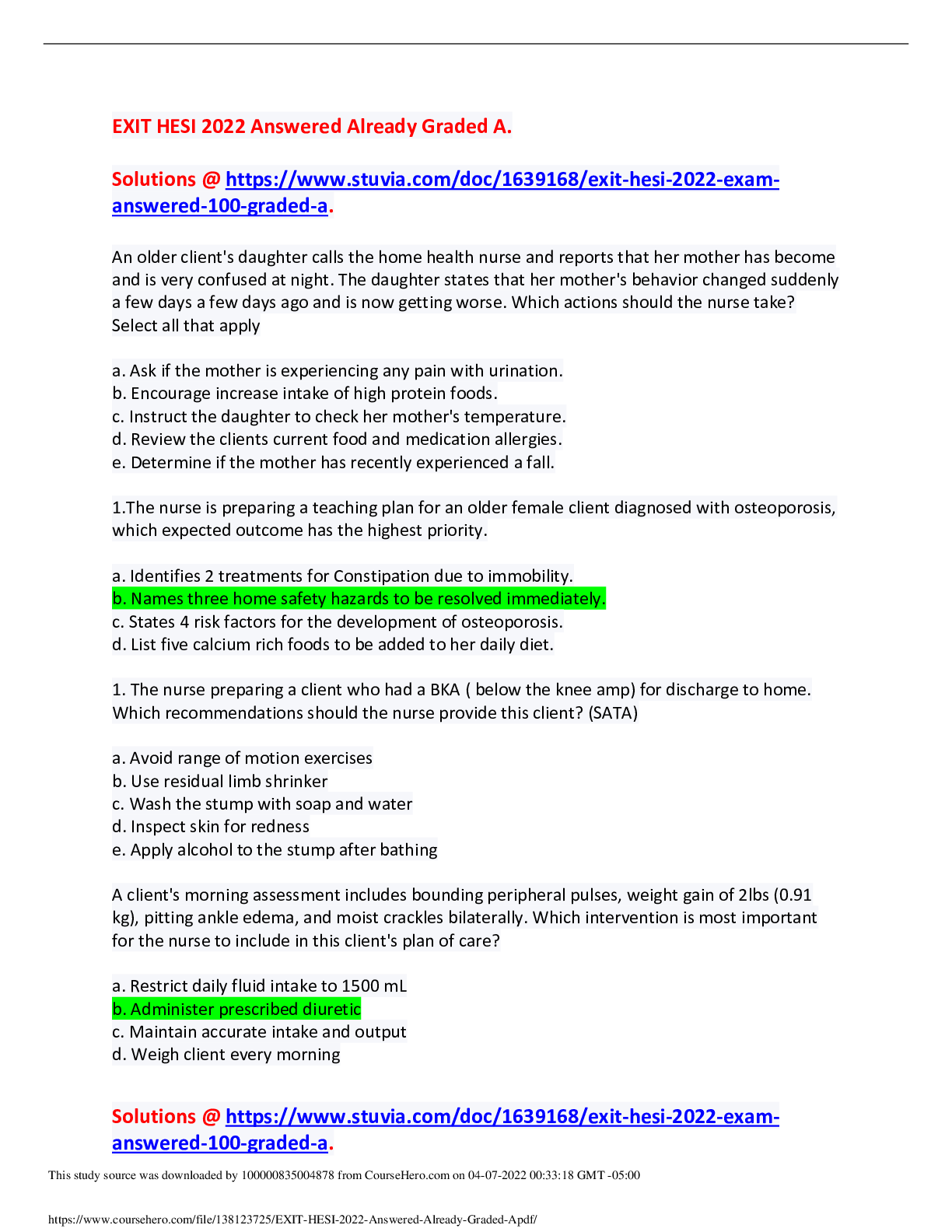
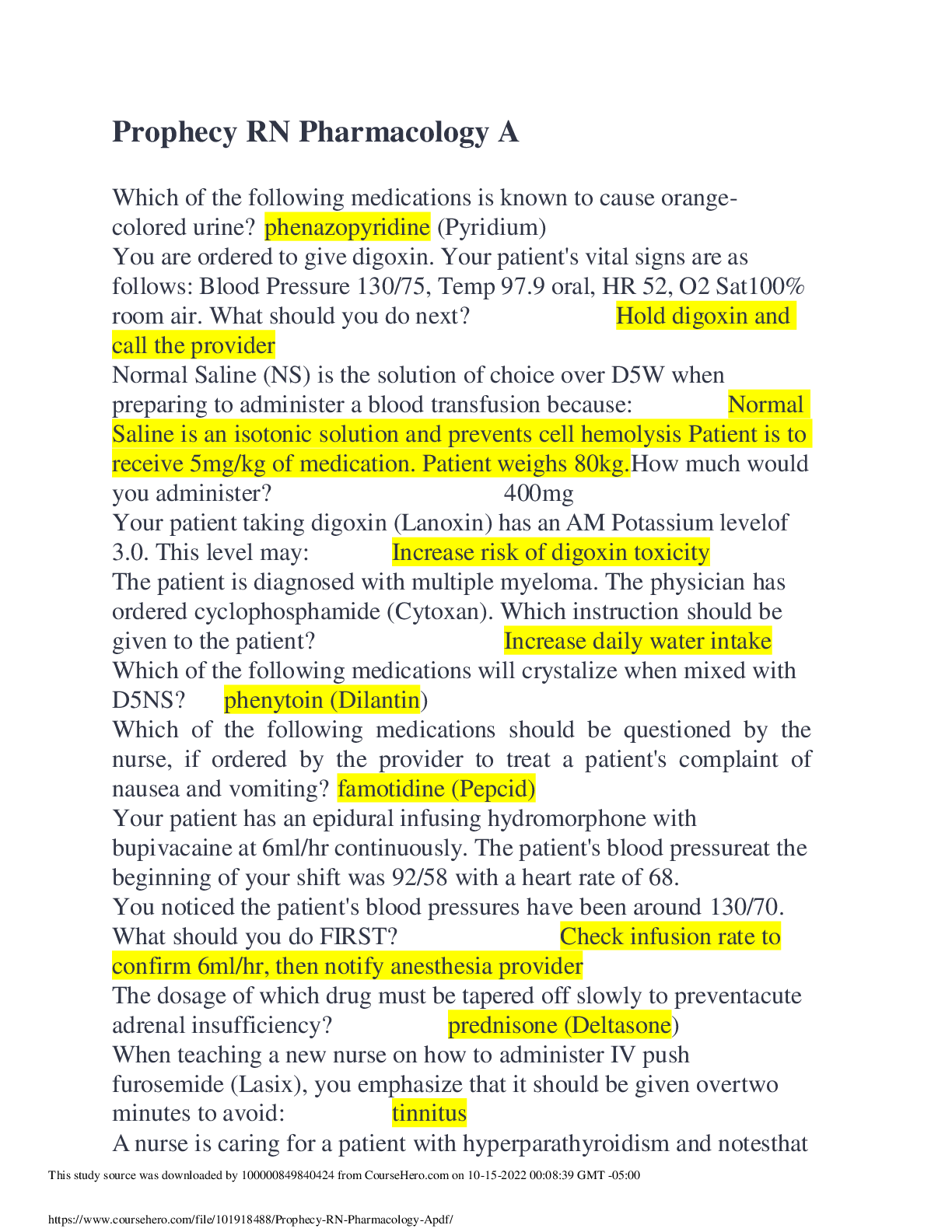
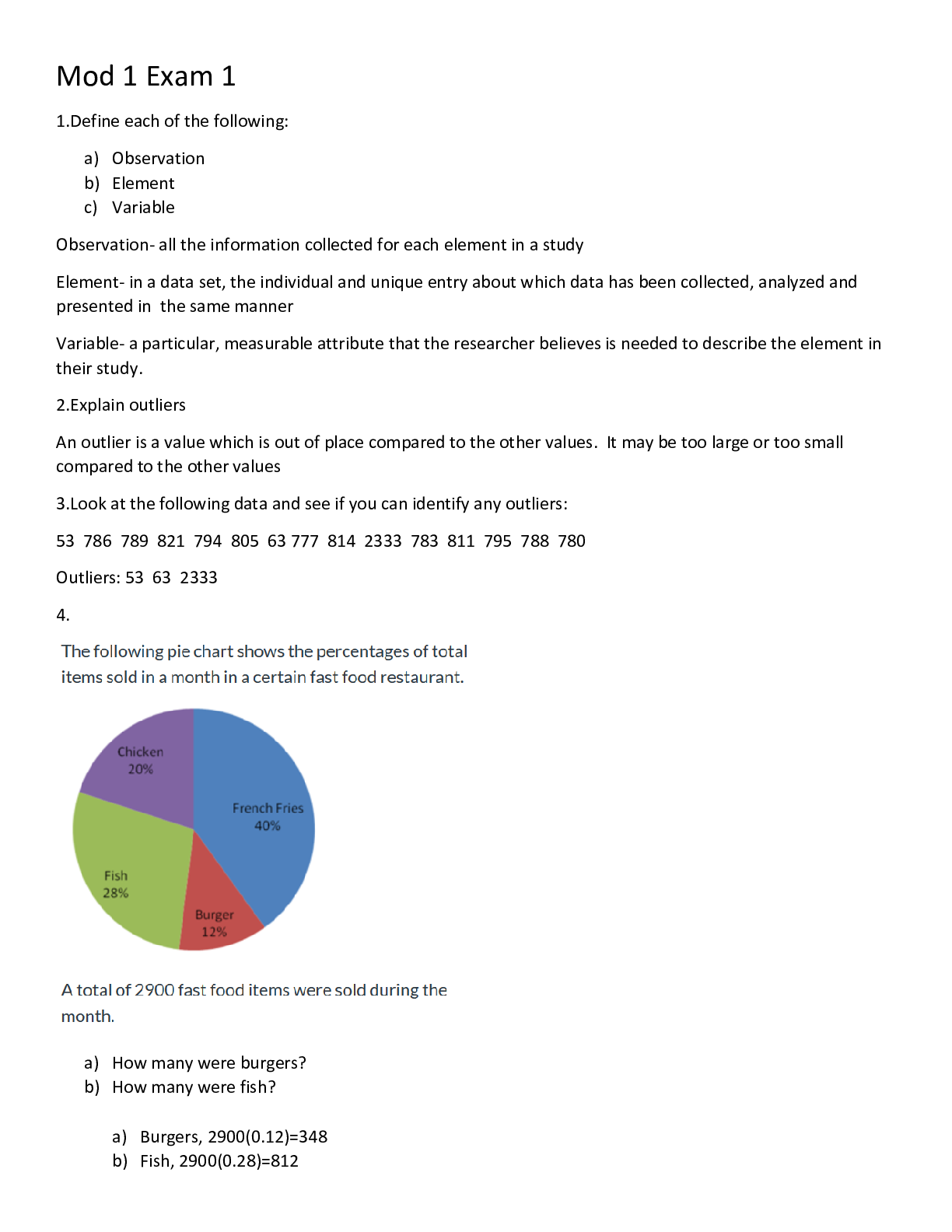
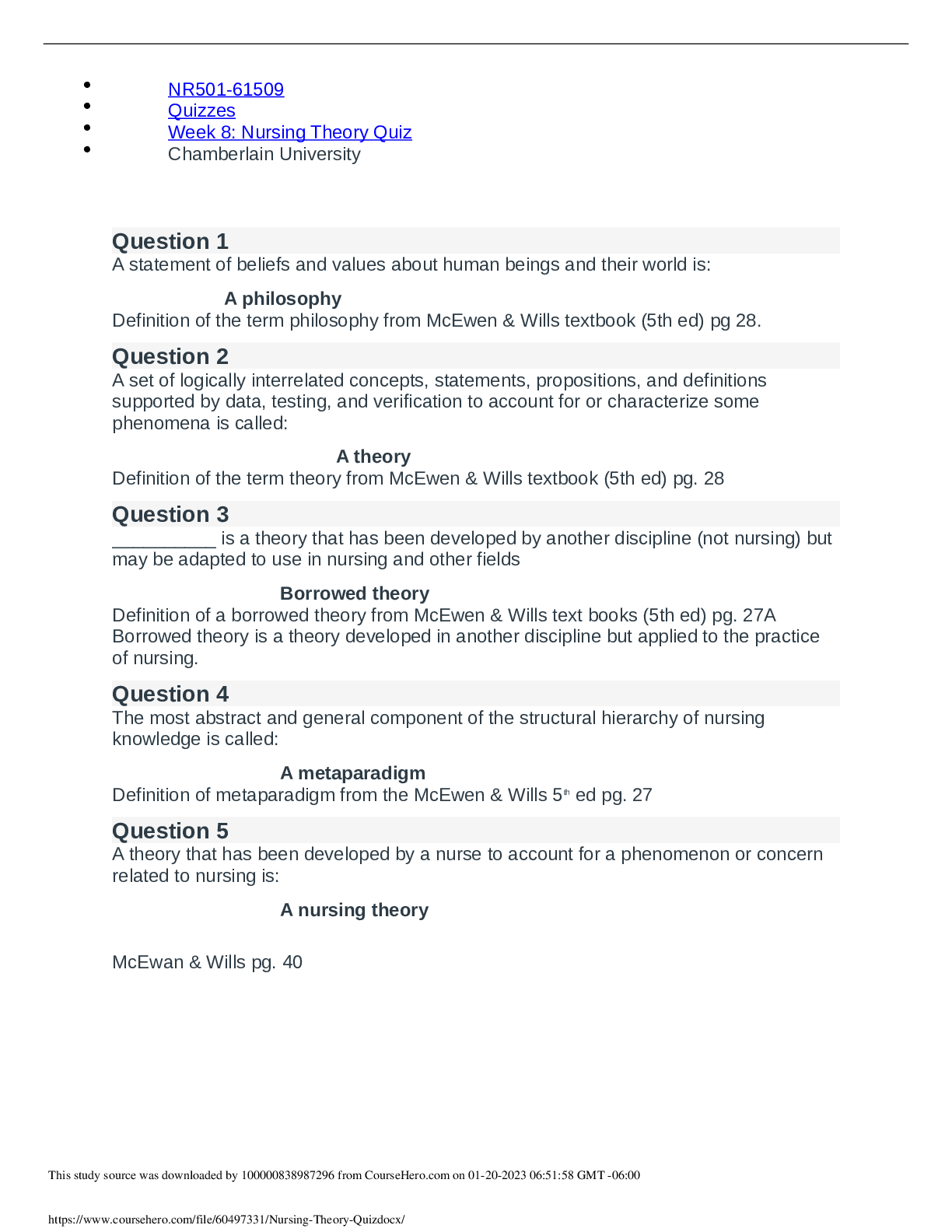
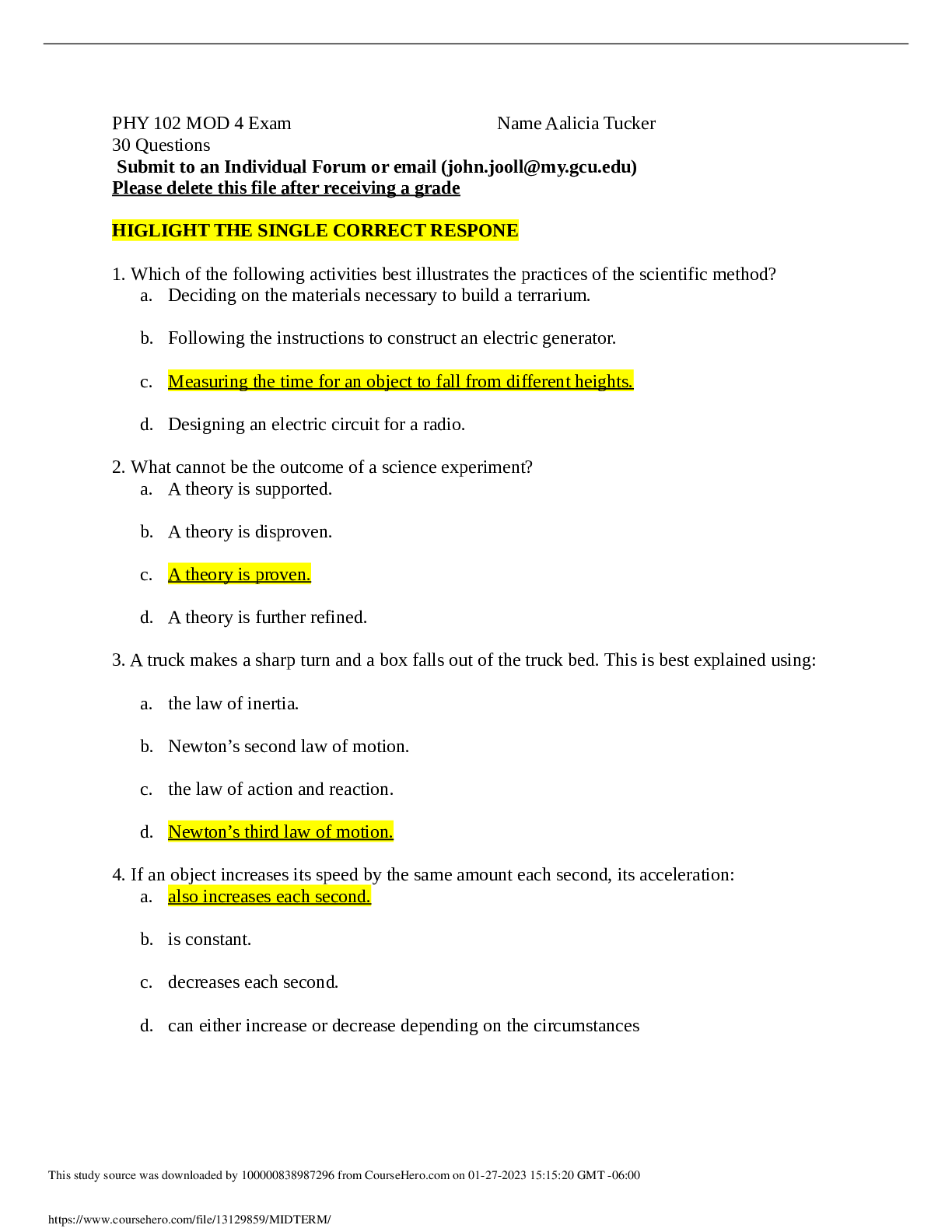
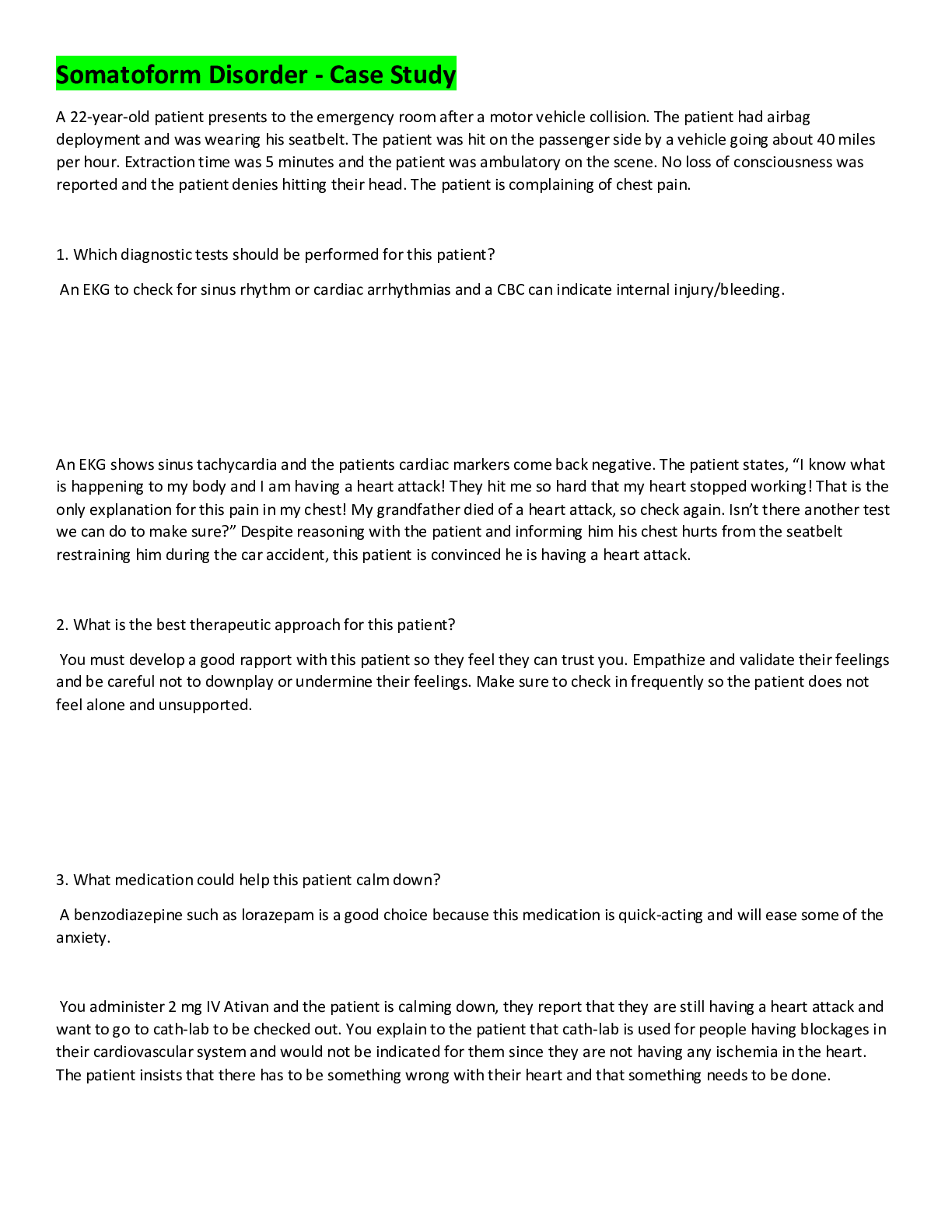

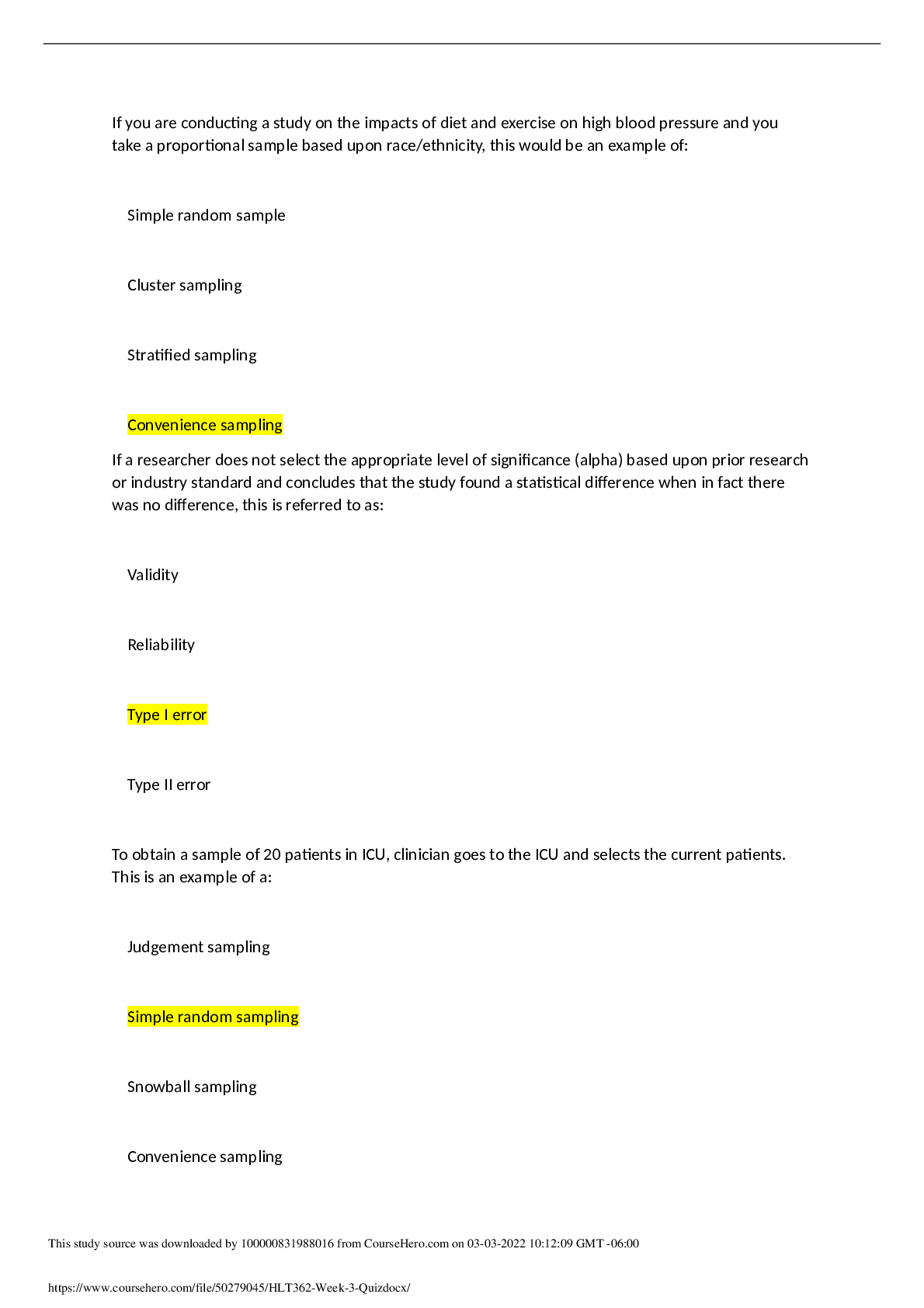
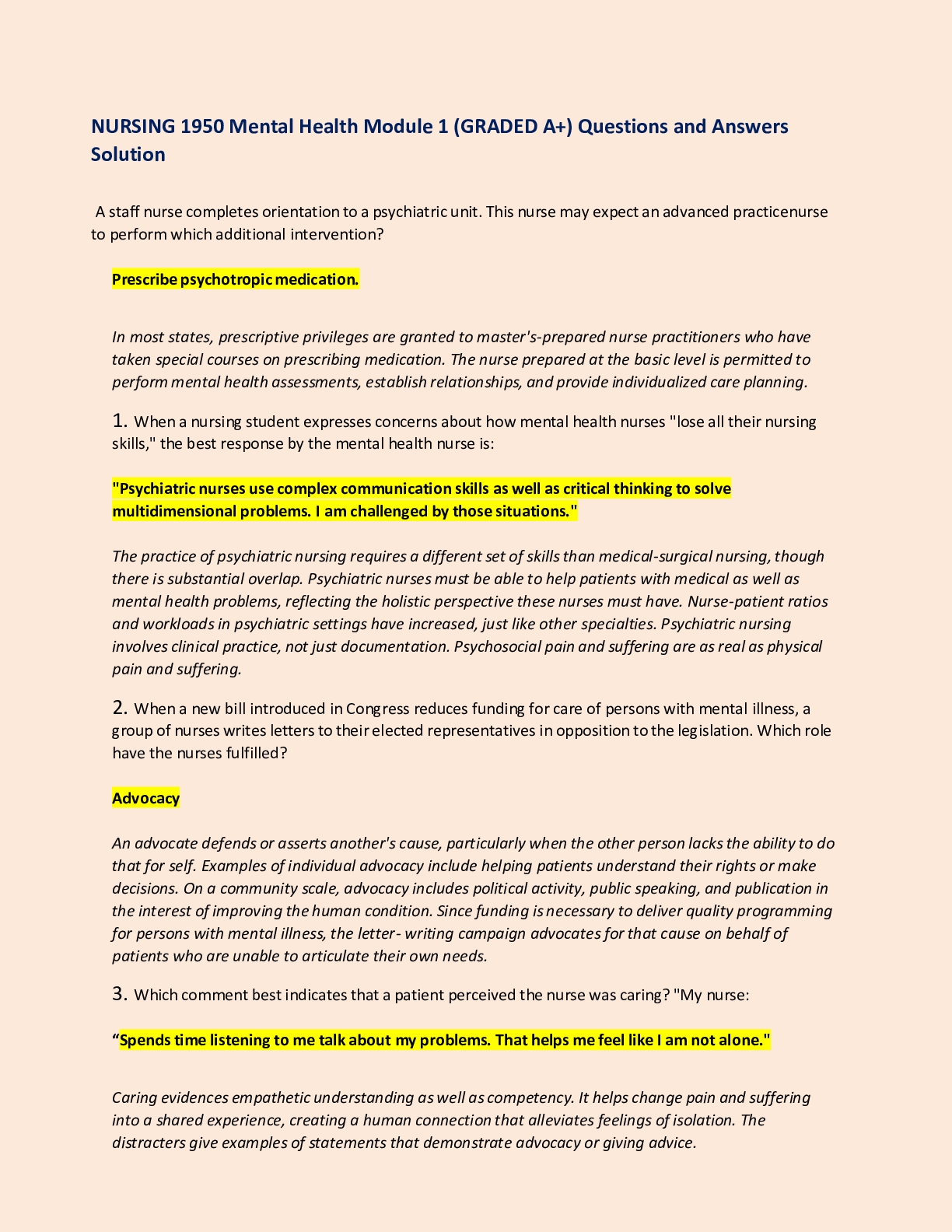
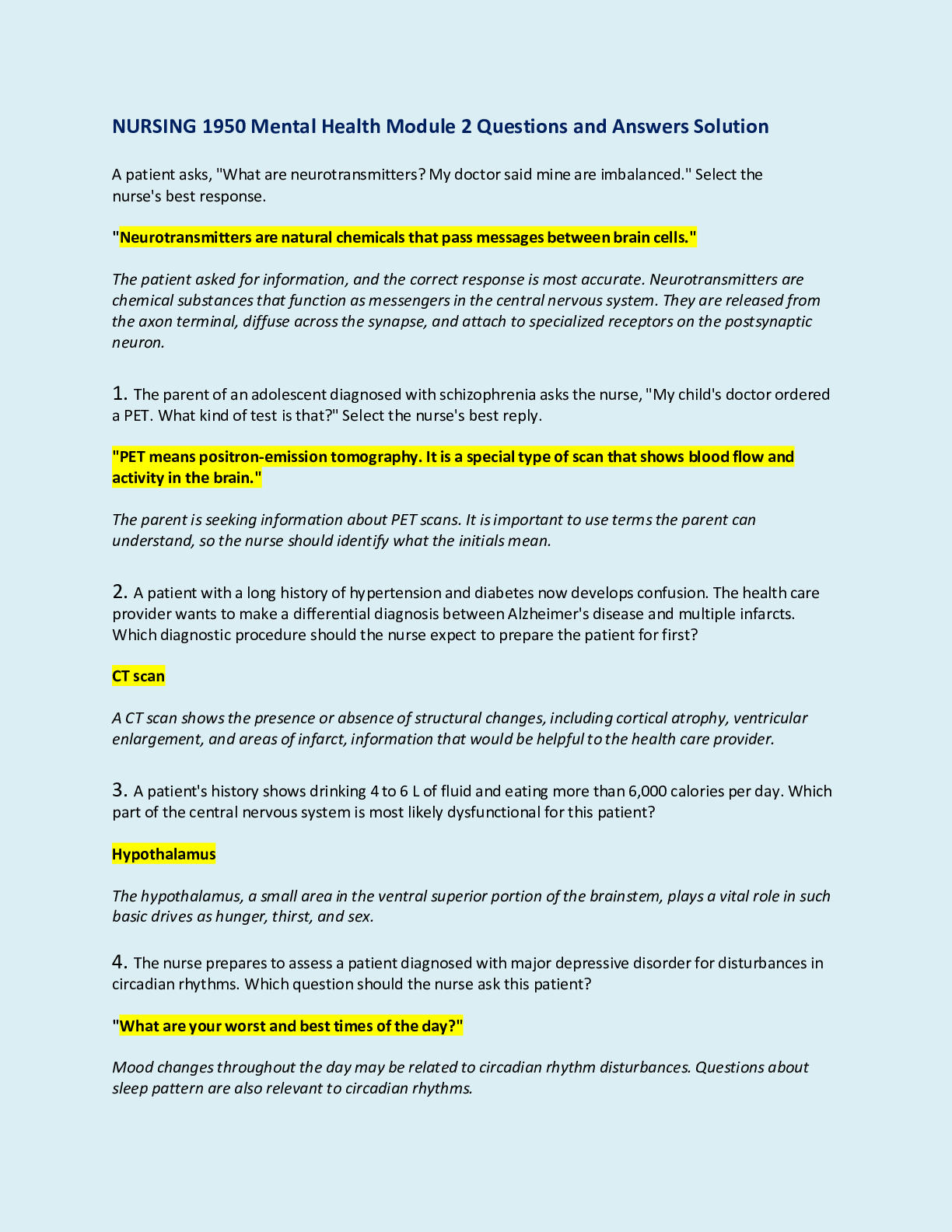
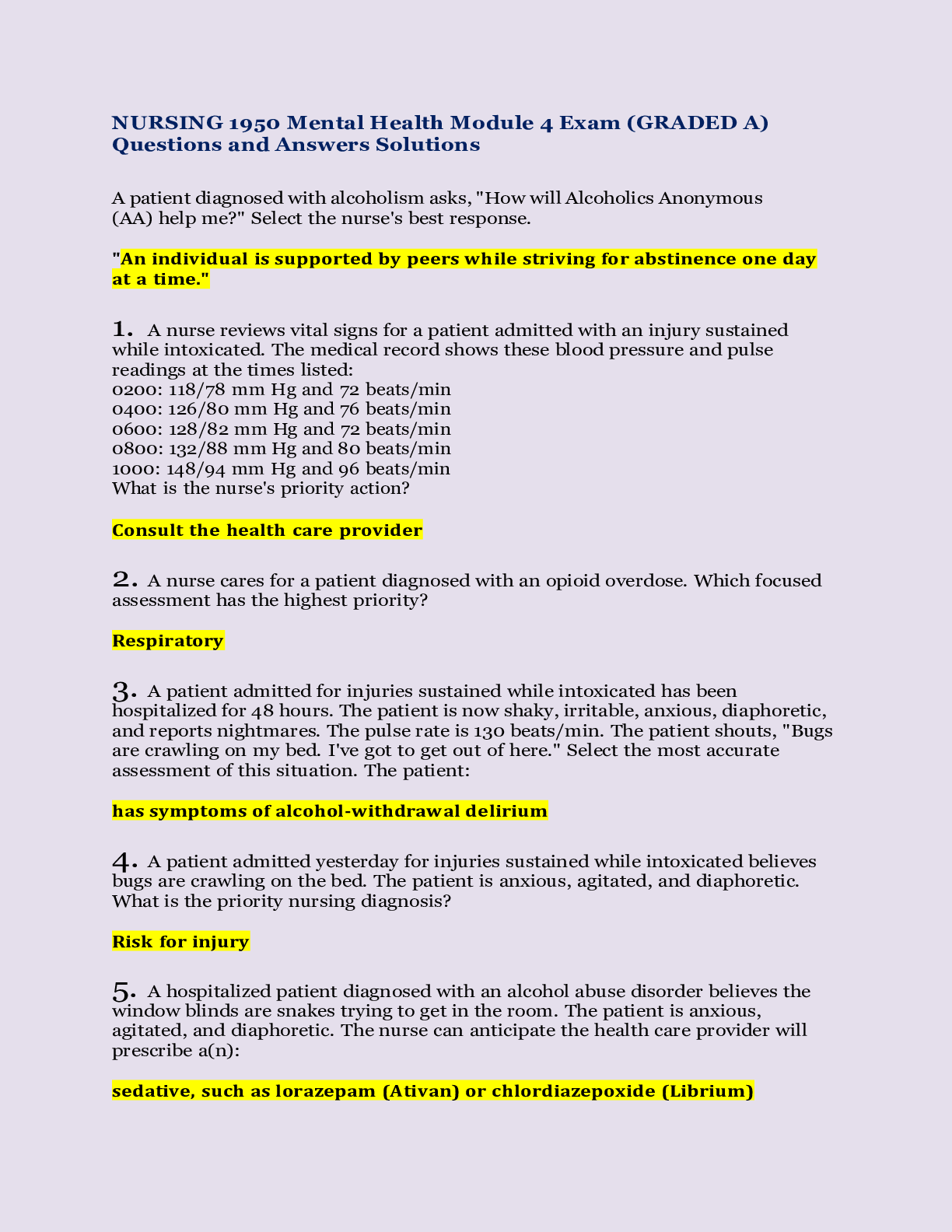
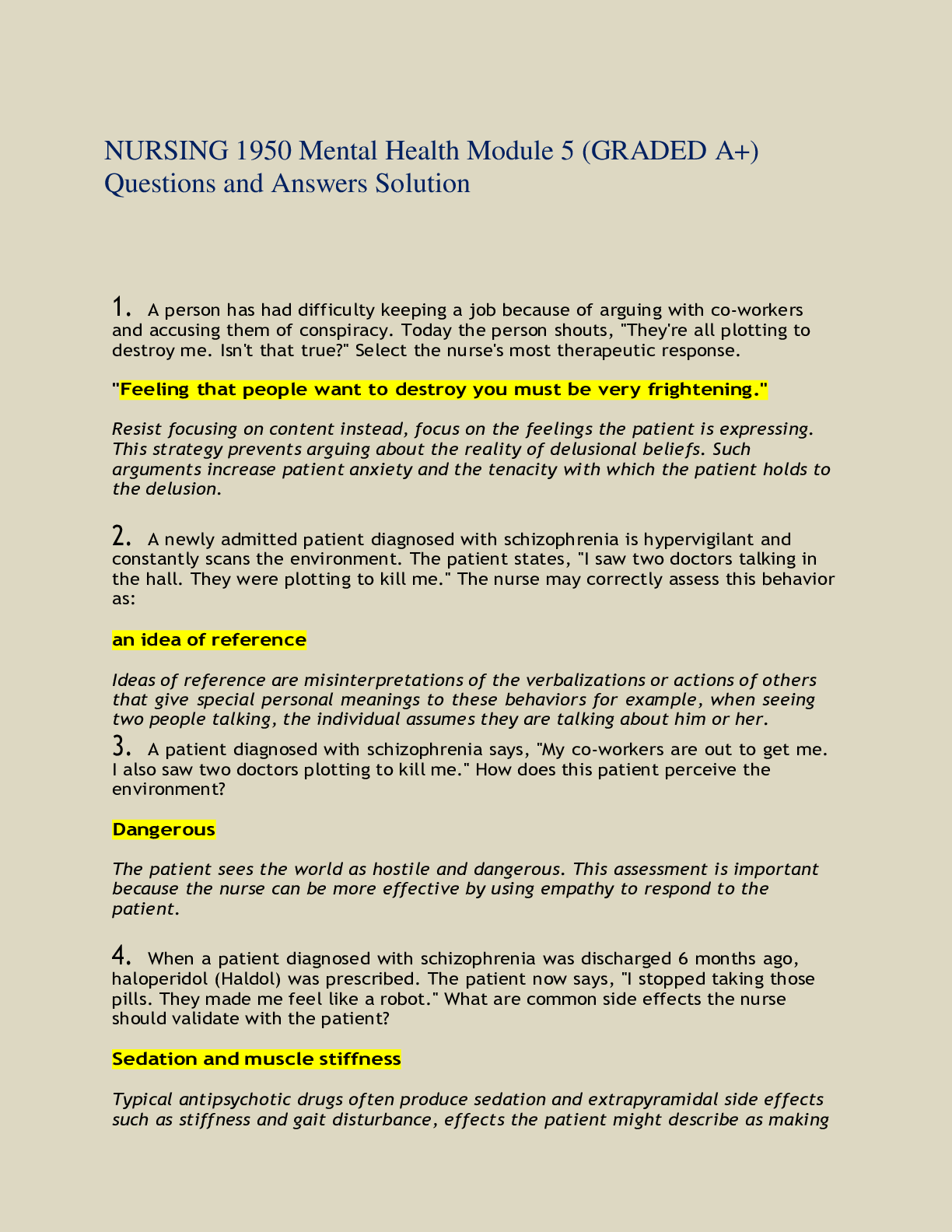
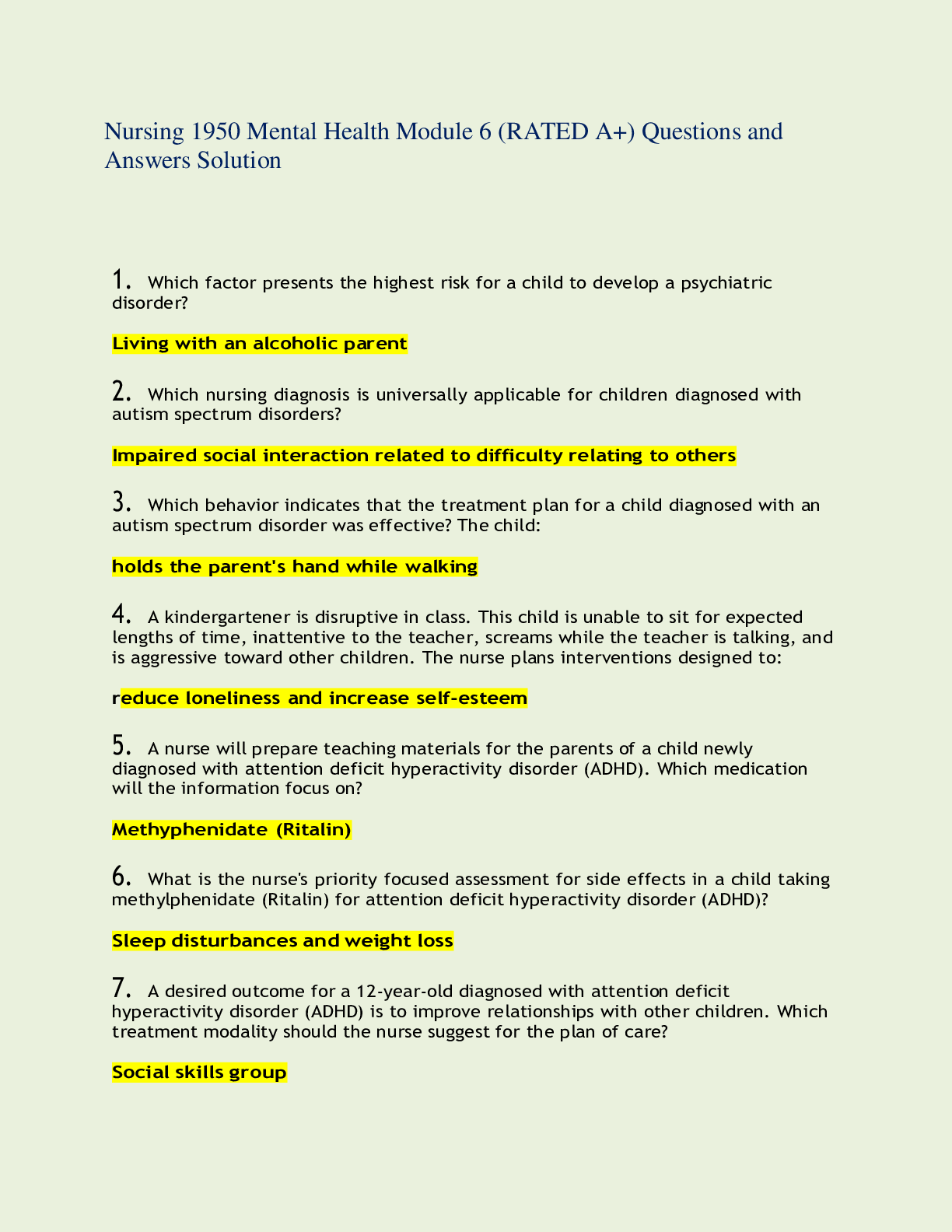
 (1).png)

